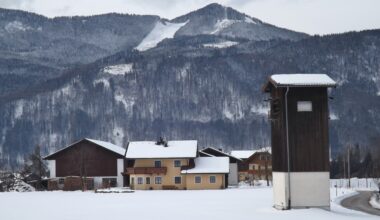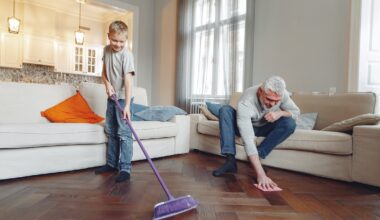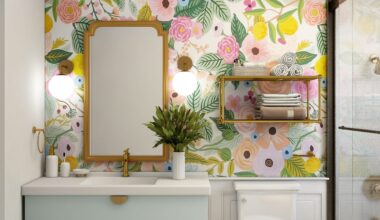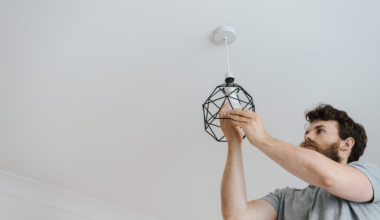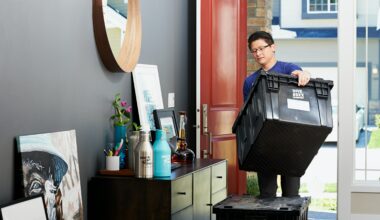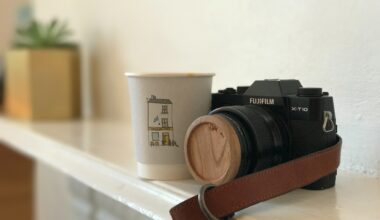Hardwood is the flooring champion for almost every room in the house, except bedrooms and bathrooms (but we’ve seen it there, too!) The beautiful aesthetic matches its versatility and resale value. According to a survey conducted by SVB Wood Floors, real estate agents said the following about hardwood floors:
- 99% of agents said it was easier to sell a home with hardwood.
- 90% of agents associated hardwood flooring with higher price tags.
- 82% of agents said homes sold more quickly than those with different flooring types.
And if that isn’t convincing enough, USA Today noted 54% of buyers were willing to pay more for hardwood floors.
So, why is hardwood so desirable?
Well, the obvious answer is the beauty of wood flooring. Hardwood is perfect for adding visual warmth to a home. You can style your space with a rug, which provides a pop of color and contrast. Additionally, hardwood floor requires fewer harsh chemicals than carpet, and its lifespan is much longer. Sanding and refinishing hardwood floors cost $1.50 – $4 per square foot, similar to new carpeting costs.
The difference is that solid hardwood flooring can last up to 100 years with proper maintenance, and refinishing hardwood is less costly than replacing carpet.
What Species of Hardwood Is Best?
There are many species you can choose from, and the benefits vary.
Oak
Oak is the most popular and familiar species of hardwood. It’s known for its affordability, healthy grain patterns, resilience to scratches and dents, and its stain absorption qualities (think custom-colored flooring).
Maple
Maple, while more expensive than oak, is harder and more resilient to high-traffic areas. The grain pattern of maple is minimal, and it doesn’t absorb stain well. Maple is for those who want a smooth and sleek look with a modern touch.
Hickory
Also known as pecan, hickory wood displays beautiful knots and grain patterns—similar to oak flooring. It’s also known for durability and the ability to absorb wood stain. Hickory, although a bit pricier, is a fantastic choice for a high-traffic area.
What Else Do I Need to Know Before Shopping for Hardwood Flooring?
There are a few considerations to make when purchasing hardwood flooring.
Solid vs. Engineered
The difference between solid and engineered hardwood is the boards. Solid hardwood is one solid piece of wood, while engineered hardwood contains a multi-layer base with polymers, wood, and resin finished with a thin layer of hardwood. Engineered hardwood is generally less expensive than solid hardwood.
Solid hardwood flooring is designed for installation on top of a wooden subfloor. Since each board is nailed into subfloors, concrete substrates aren’t supported. Solid hardwood also begins to swell when exposed to excessive moisture, such as basement level humidity. However, solid boards are thicker and can withstand multiple refinishes—allowing them to last for decades.
Engineered hardwood, a layered alternative, can be installed just about anywhere level as each plank is fitted and snapped into place. These planks heartily withstand moisture and swelling. The only downside is their thickness, which limits the potential for refinishing.
Prefinished vs. Unfinished
Homeowners have another decision to make when it comes to hardwood flooring—buying prefinished versus unfinished. Prefinished means the manufacturer sands and finishes the planks before installation, whereas unfinished is sold as-is.
Prefinished hardwood is typically tougher than unfinished hardwood. Manufacturers usually treat the wood with an aluminum oxide finish, a robust protective layer against scratches, dents, and warping. The other benefits include faster installation, fewer chemical smells, less dust, and cheaper costs.
Unfinished floors often look better than prefinished floors due to the authentic wood look (prefinished floors have a “plastic-like” factory finishing). They’re also customizable, more uniform in appearance, easier to clean, and simple to repair.
What Are My Alternatives to Hardwood Flooring?
Despite its advantages, hardwood flooring isn’t for every household. If you need an alternative to hardwood flooring, here are a few that provide the best returns on your investment.
1. Vinyl Flooring
While its reputation has been sullied as the “cheap alternative,” vinyl flooring has come a long way. While it is synthetic, it’s not sorry. Vinyl does a great job of impersonating wood, ceramic, and stone flooring while keeping your bank account happy. Vinyl flooring has a knack for being a versatile alternative to hardwood floors. You’ll find vinyl in many rooms of the house because it’s waterproof and easy to clean.
2. Laminate Flooring
This style of flooring is tough on stains, non-allergenic, and simple to install. Laminate flooring is also easy to clean. Laminate appeals to homeowners who want affordable customization. Some embossing can even add faux wood grain to the design. The keyword here is “faux,” as laminate fails to look or outperform (especially when moisture is involved) wooden floors.
3. Cork Flooring
Cork is an eco-friendly alternative to hardwood. It’s also cheaper and easier to install. Cork flooring has a waxy, protective film that repels allergens and insects. The soft material is a natural, energy-efficient insulation, that’s supportive and comfortable on your feet.
Before you load up on cork flooring, know that it’s not super durable. Furniture and appliances can leave marks, excessive moisture can result in damage, and direct sunlight may cause discoloration. Cork is best suited for living rooms and bedrooms.
The Bottom Line
While hardwood flooring remains the favorite among buyers, there are many different variations and species to consider. If you choose hardwood, create a budget and ask educated questions to pinpoint your home’s specific needs. First, decide which species will work best in your home. Second, determine if solid or engineered flooring is for you. Finally, decide if you want the manufacturer to provide prefinished planks or the installer to sand down and finish the wood on site. If you’re not interested in hardwood flooring, check out reliable, cost-effective alternatives like vinyl, laminate, and cork.
Flooring choices vary, depending on your needs. And if you want to be certain, consult with a local real estate agent or a flooring specialist.

